7 Vitamins for Teenage Girl (What She Needs Daily)
It can hard to know if your kids are getting all the nutrients they need. This article shares several Vitamins for a Teenage Girl to ensure she builds strong bones, stays energetic, and overall feels her best. Depending on her individual needs, your teen might need to take these supplements on a daily basis.

Vitamins for Teenage Girl
Even with a decent balanced diet, there is likely a need for your teenager to take some supplements to make sure she is getting all of the essential vitamins and essential minerals.
This list includes the best vitamins for your teenage girl with the precaution that you should always check with your doctor first.
1. Calcium (with vitamin K and vitamin D)
Girls go through a significant growth spurt in their teenage years and establish more than half of their bone mass at this time.
It’s very important that they get enough calcium throughout this period, as it ensures they enter adulthood with strong and healthy bones, which also helps protect them against osteoporosis later on.
The recommendation from the American Academy of Pediatrics is that young people aged from 9 to 18 consume around 1300 milligrams of calcium every day. This can be obtained from calcium-rich foods like dairy products, milk, cheese, yogurt, and canned fish (with the bones), or from supplements if needed.
But it is also important that teenage girls receive plenty of vitamin D alongside calcium, as this helps the body to absorb it better. Experts also recommend including vitamin K2, as studies have shown that it prevents calcium from building up in the arteries, which – if left unchecked – could potentially lead to heart disease in later life.
Another factor that can affect how much calcium a teenage girl gets from her diet is the amount of salt she consumes. A high-salt diet can increase the amount of calcium excreted in the urine, depriving her body of what it needs.
Calcium supplement recommendations for teenagers:
2. Vitamin D
Often known as the “sunshine vitamin” because it is made in our skin when exposed to sunlight, vitamin D helps with bone growth and keeps the immune system functioning properly.
Additionally, it supports muscle growth, making it especially important for teenage girls at a time when they are often participating in more sports and training.
Unfortunately, many teenage girls are lacking in vitamin D, particularly if they live in areas that receive little sunlight. While it can be obtained via the diet from foods like oily fish and vitamin-D fortified bread and milk, more often than not supplements are needed to keep levels where they should be.
Be sure to have your daughter’s vitamin D levels checked at least annually, and then supplement appropriately.
Vitamin D brand recommendations (be sure to have your teen’s levels checked annually):
3. Magnesium
Magnesium is a mineral that supports lots of important functions throughout the body. It helps form strong bones, regulates the rhythm of the heart, and prevents the inflammation that can lead to disease.
It can be obtained from foods like green, leafy vegetables, grains, nuts, milk, and meat, but many people including children don’t get enough.
Research carried out in 2006 showed that teenagers could benefit significantly from magnesium mineral supplements and that the bone health of the 120 teenage girls included in the study was boosted as a result of supplementation. This will have benefits in the long term, too, helping to protect against osteoporosis in later life.
Magnesium can also help reduce anxiety, improve symptoms of PMS, and help with mood overall. You can read another article on my site that talks about which are the best magnesium supplements and the signs of deficiency.
Magnesium recommendations:
4. Methylated B vitamins
The eight members of the vitamin B family are needed for a wide range of functions throughout the body. These include supporting the immune system, maintaining energy levels, and promoting a healthy appetite.
They help turn food into energy and also help keep the skin healthy and clear. B vitamins can be obtained from lots of different foods, particularly milk, cheese, offal (organ meats), meat, and fish.
Sometimes supplements are required, but most contain synthetic B vitamins. These are not well absorbed by people with MTHFR – a common gene mutation that prevents the liver from successfully metabolizing them. See my article on the best diet for MTHFR.
The answer is methylated B vitamins, which support methylation – a continuous process that keeps all your body’s systems working as they should.
Both male and female teenagers, as well as adults, would likely benefit from taking a vitamin B complex.
Methylated B vitamin recommendations:
5. Iron
Iron is responsible for helping the blood carry oxygen around the body, supporting the immune system, and helping with brain function.
As teenagers grow, so do their muscle mass and blood volume. This means that their need for iron becomes greater. In addition, this is the time when girls start their periods, increasing their need for iron further still.
Your teenage girl may also experience heavy periods as her hormonal pattern becomes established. It is probably a good idea to have her ferritin levels checked if she experiences heavy monthly bleeding or has symptoms of deficiency.
A deficiency in iron can have a real impact on health, causing breathlessness, fatigue, and even fainting.
The main source of iron is red meat, but it can also be found in poultry, fish, beans, and even green leafy vegetables. Yet studies show that low iron levels are common among teenage girls, a problem that can eventually lead to iron deficiency anemia. This means that iron supplementation is often recommended, and even more so if she trying a vegan diet or if she doesn’t routinely consume animal products.
Iron supplements to consider for your teenage girl:
6. Fish oil
Omega-3 fatty acids are known as “essential fatty acids” because your body can’t produce them. Instead, they need to be obtained through the diet.
Omega 3’s have been shown to have particular benefits for teens, supporting brain development and promoting better sleep. Studies have even shown that they can be helpful in reducing the rick of asthma.
Omega 3 fatty acids can be obtained from oily fish like mackerel, salmon, and sardines, plus nuts and some plant oils. Purified fish oil is another good choice and might be a better option for some teenage girls who don’t enjoy eating seafood.
Fish oil recommendations:
7. Vitamins A and E
You’ve probably heard that carrots are good for your eyesight, and that’s because they are rich in beta-carotene – a plant compound that the body converts to vitamin A.
Beta-carotene is a nutrient that is also found as “preformed” vitamin A in foods like meat, fish, and dairy, along with fortified breakfast cereals. In addition to supporting vision, this vitamin helps support the immune system, plus the maintenance and development of the body’s major organs.
Fortunately, vitamin A deficiency is rare in the United States, but it is important to make sure that your teenage girl is receiving an adequate amount of this all-important nutrient through her diet.
Another nutrient that supports both vision and the immune system is vitamin E. It also helps keep skin looking clear and healthy.
Teenagers need about the same amount of vitamin E as adults and can obtain it from nuts, seafood, and some oils.
Usually, they do manage to get enough through their diets and vitamin E deficiency is pretty rare in the United States. But for teens who don’t get enough, a supplement may be recommended.
A quality multivitamin will more than likely contain some vitamin A and vitamin E, along with all of the other essential nutrients.
Quality multivitamins to consider:
Teen Girl Health: Start with Food
When considering which vitamins to give your teenage girl, consider starting with a review of her food choices first.
Ideally, both children and adults would eat a mostly whole foods diet, with limited amounts of sugar-sweetened beverages and other packaged and processed foods.
The reality, however, is alarmingly different.
A recent study published in the medical journal JAMA looked at the amount of ultra-processed foods currently being consumed by children and teenagers. It revealed that just over two-thirds of all calories consumed by this age group were from nutrient-poor ultra-processed foods – an increase from 61% in 1999.
The appeal of these foods – including chips, cookies, microwavable meals, and frozen pizza – lies partly in the fact that they are convenient. But they are also designed to be hard for young people to resist, with ingredients like corn syrup, trans fats, and unhealthy amounts of salt and sugar added to make them taste more tempting.
The health implications for this age group are worrying.
Not only can a diet high in processed foods lead to problems like obesity in the short term, but it can also set young people up for a lifetime of unhealthy eating. This, of course, can lead to further health issues in later life.
The answer is to gradually steer teens away from these highly processed foods and to more wholesome choices by preparing nutritious meals at home and educating our girls about their nutritional needs.
This doesn’t mean spending hours in the kitchen, and it can be easier than you think to put together a healthy meal made with fresh ingredients.
See my clean eating shopping list for what to buy at the grocery store.
Eating healthier also doesn’t have to mean that children and teenagers need to give up their favorite foods!
Everything from processed burgers to pizzas can be easily recreated at home using healthier ingredients. Check out my recipes for Air Fryer Orange Chicken, Air Fryer Hamburgers, Chocolate Chip Chickpea Cookie Dough, or Vegan Zucchini Brownies.
It’s important to think about snacks, too, and ensure that there are wholesome, ready-to-eat foods in the house that young people can grab and eat on the go. Here’s a list of healthy homemade snacks you can have on hand.
Got a picky eater? Check out my list of the best vegetables for picky eaters to help get veggies into her body. You might also like this article on cooking vegetables to taste good.
Foods to Include Daily for Teens
If you’re uncertain about what foods to feed your teenage girl, start with the basics. Shoot for 3 balanced meals and 1-2 snacks a day. Watch out for added sugars and too much salt.
Stay away from fried foods and choose broiled, baked, or steamed foods instead. The Instant Pot, slow cooker, air fryer, and blender can all come in handy when making foods for your teenager that actually taste good. My clean eating recipe index has hundreds of options. You might also like my list of the best healthy appliances you’ll need.
Check this article from Stanford Children’s Health for more ideas on foods to include daily. And, of course, always be sure to check with your doctor about the best diet or vitamins for your children.
Teen Girl Vitamin FAQs
An aversion to swallowing pills is fairly common – but there are a few ways you can help your teenager overcome it.
Instead of water, encourage her to try taking her vitamins with milk or a milkshake. It makes a big difference! An alternative is to put the pill into a semi-solid food like ice cream or applesauce.
Or why not try the method described in the Annals of Family Medicine which was found to be “remarkably effective”?
Just fill a flexible plastic bottle with water and ask your daughter to place the tablet on her tongue. She then needs to place her lips around the opening of the bottle and take a drink using a sucking motion. Without letting air get into the bottle, she needs to immediately swallow the pill and the water.
The same study also found that tilting the chin towards the chest and swallowing the pill with the head bent forward can make it a lot easier to take.
But if all else fails, there are alternatives to vitamins in pill form. Many brands offer chewable or gummy vitamins, and they are often available in liquid form too.
The best time to take vitamins might vary a little bit from one person to another and also depends on which dietary supplements are being taken.
In general, taking vitamins with a meal is usually the best option, as it helps your body to absorb more than it would on an empty stomach. This is especially true for fat-soluble vitamins like vitamins A, D, E, and K, and also for iron, which can cause stomach pain if taken without food.
It is a good idea for your daughter to choose the meal with which she would like to take her vitamins every day, which will help her be consistent going forward. Consider making her a little packet or bowl of supplements for each meal, or purchase and fill up a weekly pill case that has labels for each day.
Learning to take care of herself and practice self-care like taking supplements on a daily basis is an important habit that she can take into adulthood.
There are a few signs and symptoms that can indicate your teenage daughter may be anemic, but only a medical professional can give a true diagnosis.
Symptoms of anemia include:
Pale or yellow skin and lips
Pale nail beds or lining of the eyes
Weakness
Fatigue
Dizziness
Fainting
Chest pain
Breathlessness
Headaches
Even mild anemia can affect your daughter’s energy and make it harder to focus at school, so it’s important to speak to her pediatrician or a functional medicine practitioner if you notice any of these signs.
Unfortunately, there is not just one vitamin or supplement that will cover everything your teenager needs. Even if she is eating a healthy diet on most days, she still may need additional nutrients in a pill form, including iron, calcium, and vitamin D.
As a start, you can try this Smarty Pants Gummy developed for teenage girls, but please note that it does not contain iron or calcium, and one serving is 4 gummies. Your teenager may need to take several pills or gummies per day to meet her needs. Smarty Pants also has a version for teenage boys as teen boys likely need a daily multivitamin as well!
More Supplement Articles You Might Like
Conclusions
Your daughter’s teenage years are a time of rapid growth, both physically and emotionally. Ensuring that she has a healthy diet and receives the right amount of important vitamins is the best way you can support this stage of her development and keep her feeling healthy and happy.
About the Author: Carrie Forrest has a master’s degree in public health with a specialty in nutrition and is a certified holistic nutritionist. She is a top wellness and food blogger with over 5 million annual visitors to her site. Carrie has an incredible story of recovery from chronic illness and is passionate about helping other women transform their health. Send her a message through her contact form.
Don’t forget to join my newsletter list to get exclusive clean eating recipes and tips. The newsletter is 100% free with no spam; unsubscribe anytime.
Note: this post is for informational purposes only and is not intended as medical advice. Please consult your healthcare provider for recommendations related to your individual situation.




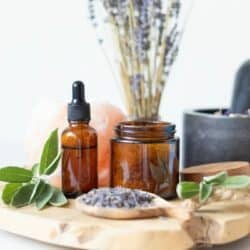
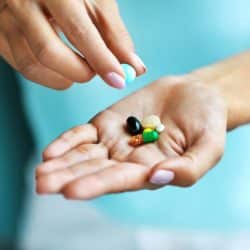



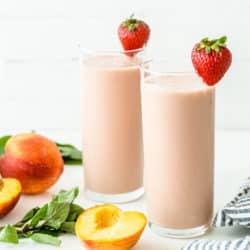
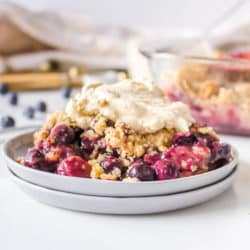




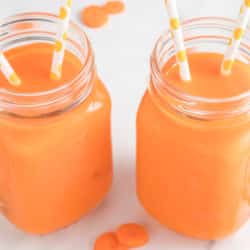





Is there an easy to take vitamin that can address all of these key vitamins that a teen girl should have ?
I wish there was just one pill that would cover it all. The closest I found is this gummy, but she’ll need to take 4 a day and may also need supplemental iron, vitamin D, and calcium (and maybe others). https://amzn.to/3qi7Pqu